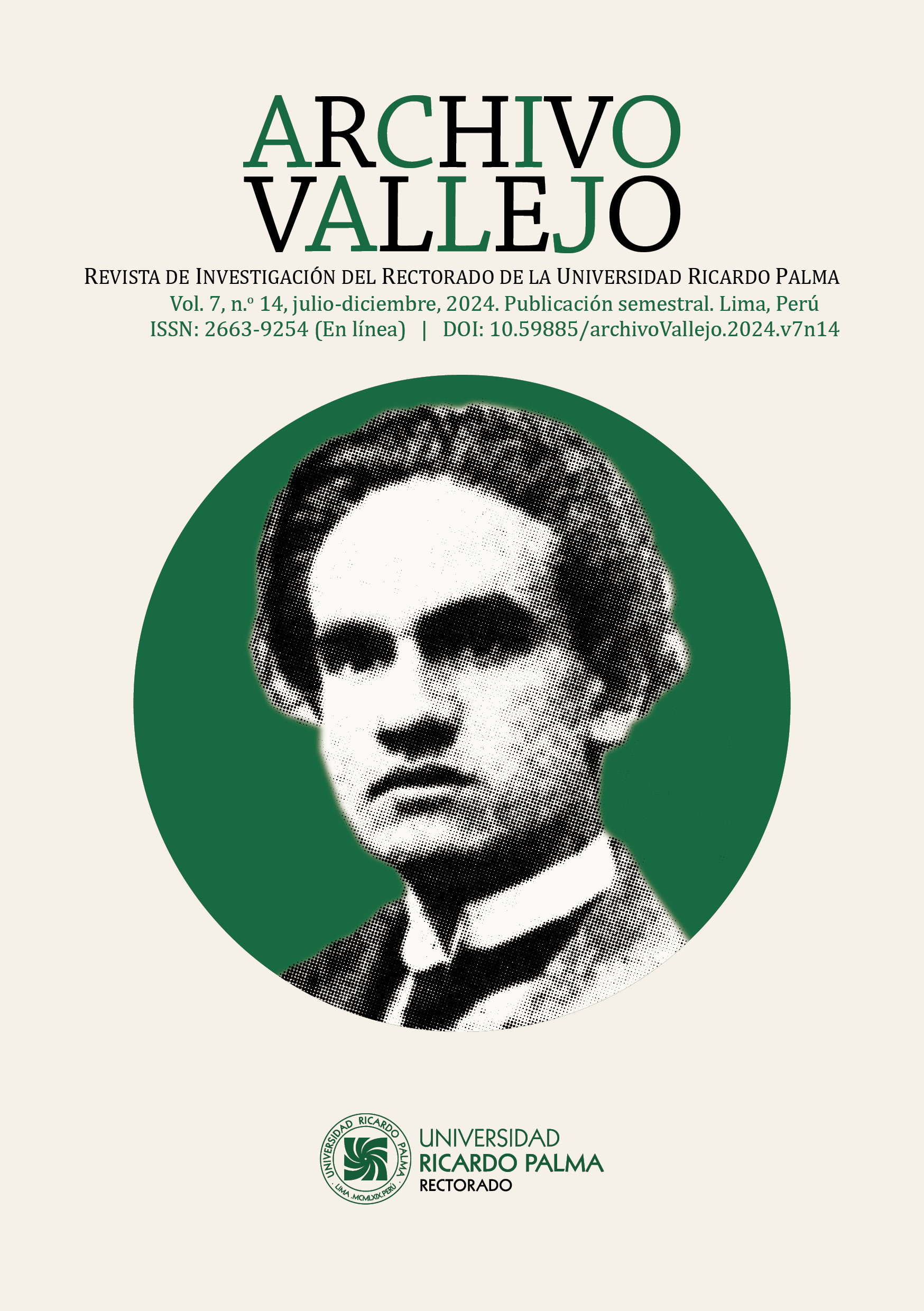Resisting power from the ‘white knots’ of language: myth and memory in Ricardo Piglia’s La ciudad ausente
DOI:
https://doi.org/10.59885/archivoVallejo.2024.v7n14.10Keywords:
Ricardo Piglia, science fiction novel, dystopia, dictatorship, language, mythAbstract
This article analyses the aesthetic-ideological proposal of Ricardo Piglia’s novel La ciudad ausente (1992). The aim is to elucidate how this work rethinks the link between the subject and collective memory in the context of a dystopian post-conflict scenario defined by repression and censorship in the social sphere. In this respect, it is hypothesised that in Piglia’s work there is an effort to recompose social ties and to nourish a form of resistance to power through the re-actualisation of the mythical foundation of language (the ‘white knots’). In fiction, this enterprise is carried out by Macedonio’s machine, which gathers the signs of the past and constructs multiple horizons of meaning. In this process, this apparatus constitutes itself as a subject through discourse and adopts an enunciative praxis that questions, using fiction, the reality established by hegemonic narratives, appealing to myth and the unrepresentable character of language. Around it, a space opens up for the construction of utopia and the creation of a collective memory beyond the regime of meaning established by state power.
References
Avelar, I. (2000). Alegorías de la derrota: La ficción postdictatorial y el trabajo del duelo. Cuarto Propio.
Byung-Chul, H. (2014). Psicopolítica: Neoliberalismo y nuevas técnicas del poder. Herder.
Chiani, M., & Basile, T. (1995). Utopía y tradición utópica en La ciudad ausente de Ricardo Piglia. Kipus. Revista Andina de Letras, 3, 99-106. http://hdl.handle.net/10644/1854
Conejo, L. (2012). Ciudad, memoria y ficción: Ricardo Piglia y el caso argentino. Contextos. Estudios de Humanidades y Ciencias Sociales, 28, 41-55. http://www.umce.cl/joomlatools-files/docman-files/universidad/revistas/contextos/N28-02.pdf
Feitlowitz, M. (2011). A lexicon of terror: Argentina and the legacies of torture. Oxford University Press.
Fontanille, J. (2001). Semiótica del discurso. Universidad de Lima.
Giraldo, E. (2019). La narración alivia la pesadilla de la historia: La ciudad ausente de Ricardo Piglia y la periferia de la distopía. Co-Herencia, 16(30), 129-156. https://doi.org/10.17230/co-herencia.16.30.6
Huyssen, A. (2007). En busca del futuro perdido: Cultura y memoria en tiempos de globalización. Fondo de Cultura Económica.
Molina, P. (2015). Nudos blancos: Acerca de la relación mito-memoria cultural en La ciudad ausente (1992) de Ricardo Piglia. Revista Pucara, 1(26), 145-160. https://publicaciones.ucuenca.edu.ec/ojs/index.php/pucara/article/view/2598
Piglia, R. (1992). La ciudad ausente. Sudamericana.
Quijano, M. (2014). Convergencias genéricas: Anticipación y enigma en La ciudad ausente de Ricardo Piglia. Cuadernos Americanos, 2(148), 87-104. http://www.cialc.unam.mx/cuadamer/textos/ca148-87.pdf
Downloads
Published
How to Cite
Issue
Section
License
Copyright (c) 2024 Martín Vargas Canchanya

This work is licensed under a Creative Commons Attribution 4.0 International License.
Los contenidos publicados en la revista están bajo una licencia CC-BY 4.0, la cual permite:
- Compartir, copiar y redistribuir el material en cualquier medio o formato.
- Adaptar, remezclar, transformar y construir a partir del material para cualquier propósito, incluso comercialmente.
Bajo los siguientes términos:
- Atribución. Usted debe dar crédito de manera adecuada, brindar un enlace a la licencia, e indicar si se han realizado cambios. Puede hacerlo en cualquier forma razonable, pero no de forma tal que sugiera que usted o su uso tienen el apoyo de la licenciante.















